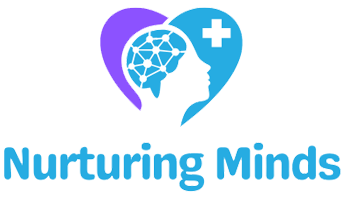
PTSD
Post-traumatic stress disorder (PTSD) can develop after you experience a severe shock or life-threatening experience. If you suffer from PTSD symptoms like flashbacks and nightmares, visit Nonyerem Rosemary Eneje, DNP, FNP-BC, PMHNP-BC. She offers diagnosis and treatment that helps you overcome past the most distressing traumas. CallNurturing Minds or schedule a consultation by completing the online form to get expert help overcoming PTSD.
PTSD Q&A
What is PTSD?
PTSD is a highly distressing psychiatric condition that sometimes affects people after they experience or witness a traumatic event. Anything that causes overwhelming fear, terror, and horror can lead to PTSD, such as:
- Military combat
- Living or working in a war zone
- Hurricanes and tornadoes
- Fires and floods
- Being trapped in a tunnel, cave, or collapsed building
- Violent assault and rape
- Mass shootings
- Terrorist attacks
- Air, road, rail, and sea transport disasters
- Severe auto accidents
- Life-changing injuries or illnesses
The events that provoke PTSD are usually short-lived, lasting days, hours, or sometimes minutes. However, people who endure long-term trauma (like those in abusive relationships) can develop complex PTSD, a chronic form of the condition.
PTSD may develop soon after a trauma, or it could be months or years before you notice any symptoms.
What symptoms suggest I have PTSD?
PTSD symptoms typically fit into one of four categories — intrusive memories, avoidance, negative thoughts, and reactivity. Common ways for these symptoms to present include:
- Nightmares
- Not talking about the event
- Avoiding reminders of the trauma
- Depression and anxiety
- Hopelessness
- Guilt
- Feeling detached from family and friends
- Startling easily
- Difficulty sleeping
- Problems concentrating
- Irritability and anger
- Intense guilt or shame
- Panic attacks
- Flashbacks
Flashbacks are one of PTSD’s defining symptoms. They occur when a smell, sound, or other stimulus triggers a detailed recall of the trauma that’s so realistic you feel you’re back in the moment.
It’s natural to feel shaken and disturbed by traumatic events but provided you take care of yourself; you should recover in a few days or weeks. If PTSD symptoms interfere with daily life for a month or more, contact Nurturing Minds for an expert diagnosis and effective treatment.
How do I recover from PTSD?
Recovery from PTSD typically requires medications like antidepressants and/or anti-anxiety drugs combined with psychotherapy. Suppressing the memories doesn’t help you get over PTSD; in fact, it’s likely to make it worse. Your provider enables you to open up about the experience so your mind can process the trauma properly.
You also learn ways to reduce the effect of unwanted thoughts and negative emotions so you can cope better in daily life. Nurturing Minds offers a comforting, safe environment where you can discuss your symptoms confidentially without any judgment.
